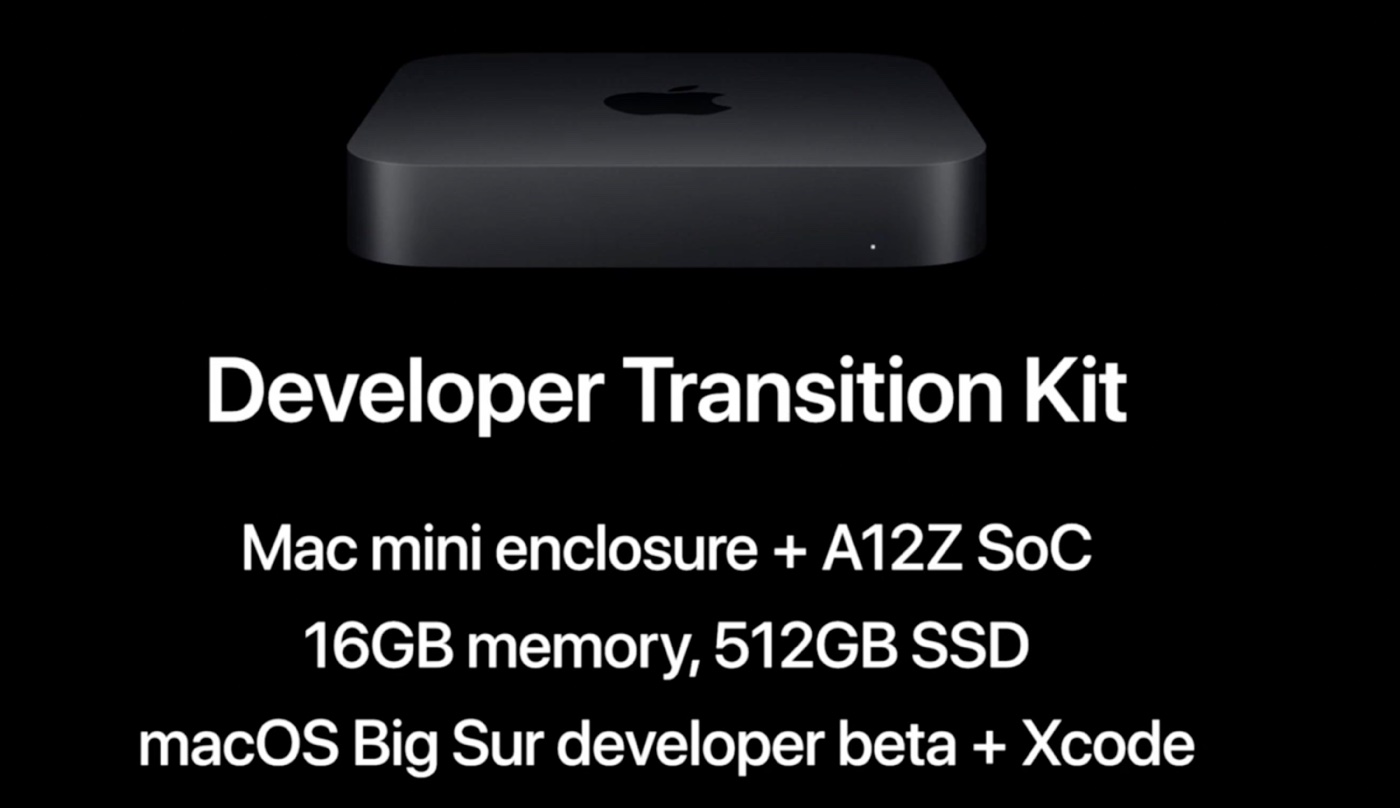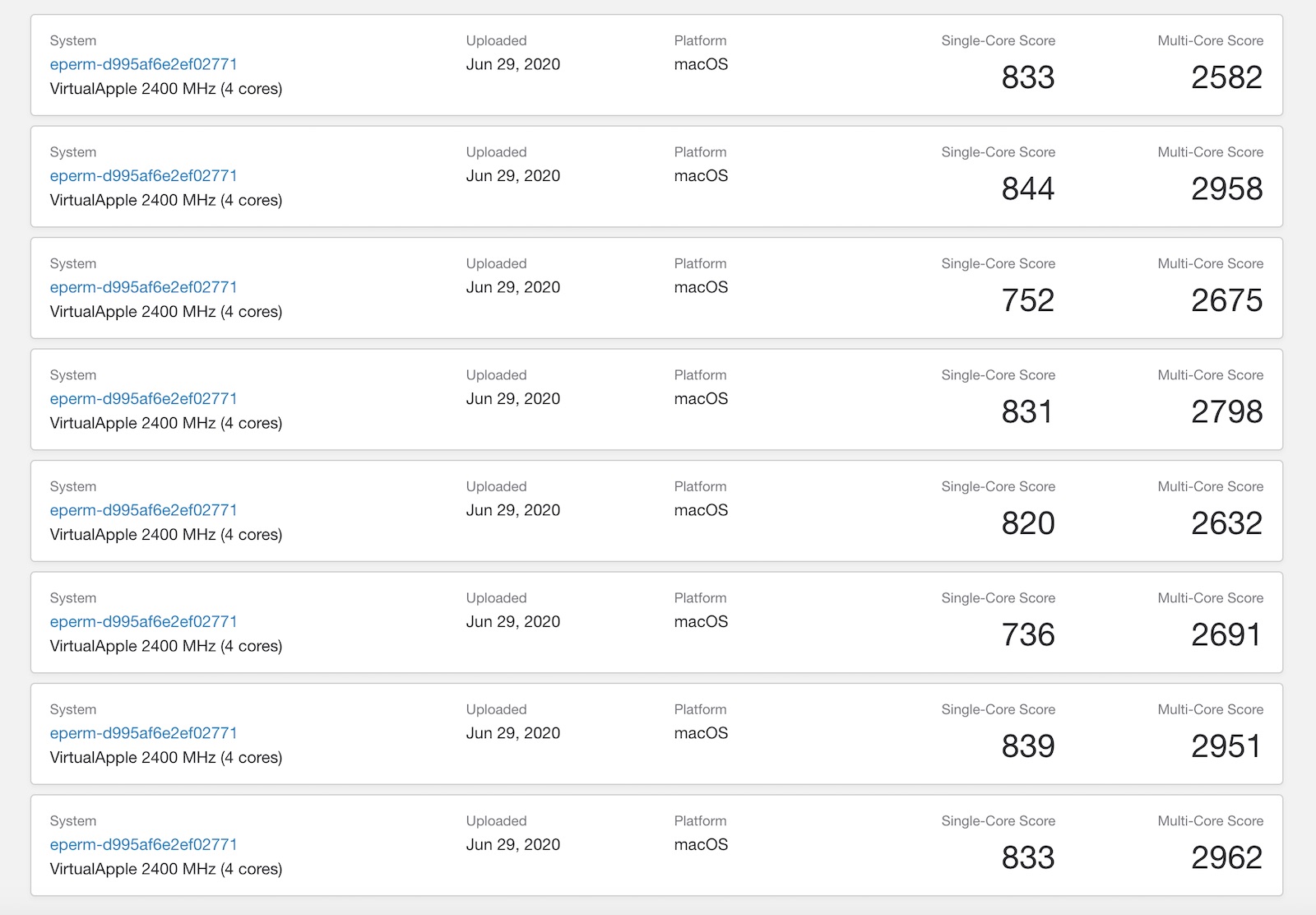
Apple's Developer Transition Kit equipped with an A12Z iPad Pro chip began arriving in the hands of developers this morning to help them get their apps ready for Macs running Apple Silicon, and though forbidden, the first thing some developers did was benchmark the machine.

Multiple Geekbench results have indicated that the Developer Transition Kit, which is a Mac mini with an iPad Pro chip, features average single-core and multi-core scores of 811 and 2,871, respectively.

As developer Steve Troughton-Smith points out, the two-year-old A12Z in the Mac mini outperforms Microsoft's Arm-based Surface Pro X in Geekbench performance, running x86_64 code in emulation faster than the Surface Pro X can run an Arm version natively.
Averaging seven Geekbench 5 benchmarking results, Microsoft's Surface Pro X features a single-core score of 726 and a multi-core score of 2,831, meaning the A12Z outperforms the Surface Pro X in single-core testing and is on par or slightly better in multi-core performance.
The Surface Pro X features a Microsoft-designed 3GHz Arm processor based on the Qualcomm SQ1 chip.
Apple's DTK provided to developers is just a test machine using an older A12Z chip (it's the same as the A12X chip in the 2018 iPad Pro but with an extra GPU core unlocked). Apple's Arm-based Macs that run Apple Silicon will have new chips designed for the Mac and based on the A14 chip created for the 2020 iPhone lineup with a 5-nanometer process.
Apple says its Apple Silicon Macs will bring major improvements in performance and power efficiency, and the first Arm-based Mac is set to be released before the end of 2020.
Article Link: Apple's A12Z Under Rosetta Outperforms Microsoft's Native Arm-Based Surface Pro X

